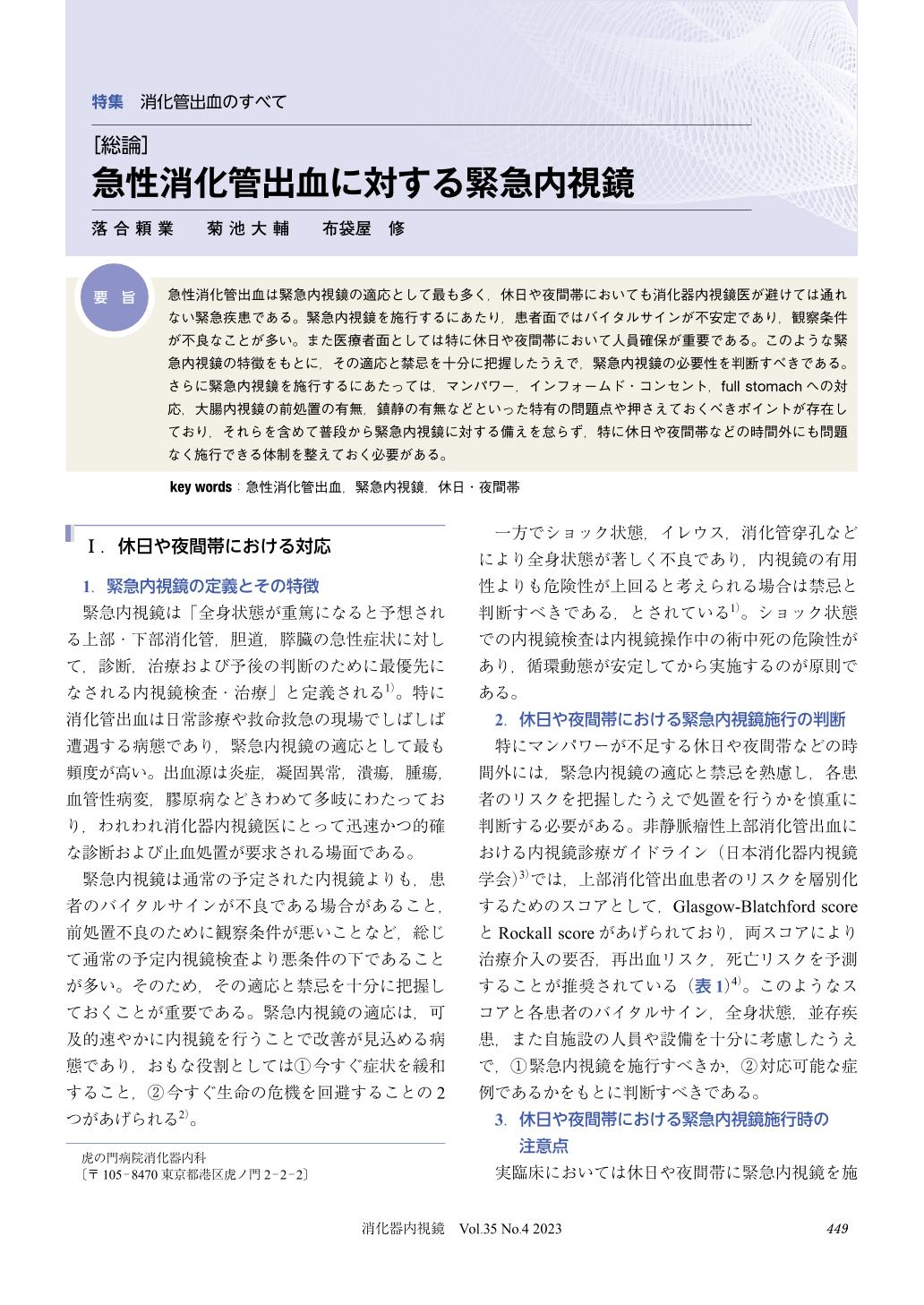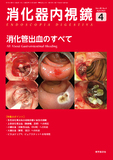Japanese
English
- 有料閲覧
- Abstract 文献概要
- 1ページ目 Look Inside
- 参考文献 Reference
要旨
急性消化管出血は緊急内視鏡の適応として最も多く,休日や夜間帯においても消化器内視鏡医が避けては通れない緊急疾患である。緊急内視鏡を施行するにあたり,患者面ではバイタルサインが不安定であり,観察条件が不良なことが多い。また医療者面としては特に休日や夜間帯において人員確保が重要である。このような緊急内視鏡の特徴をもとに,その適応と禁忌を十分に把握したうえで,緊急内視鏡の必要性を判断すべきである。さらに緊急内視鏡を施行するにあたっては,マンパワー,インフォームド・コンセント,full stomachへの対応,大腸内視鏡の前処置の有無,鎮静の有無などといった特有の問題点や押さえておくべきポイントが存在しており,それらを含めて普段から緊急内視鏡に対する備えを怠らず,特に休日や夜間帯などの時間外にも問題なく施行できる体制を整えておく必要がある。
Acute gastrointestinal bleeding is the most common indication for emergency endoscopy, and is an emergency situation that gastrointestinal endoscopists cannot avoid, even during off-hours. The patient’s vital signs are often unstable and the observation conditions are often poor. It is important to secure sufficient medical staff, especially during off-hours. Based on these characteristics, the indications and contraindications for emergency endoscopy should be fully understood before determining the necessity of the procedure. In addition, when performing emergency endoscopy, there are specific problems and points to be kept in mind, such as manpower, informed consent, response to a full stomach, presence or absence of bowel preparation for colonoscopy, and presence or absence of sedation. Therefore, it is necessary to prepare a system that can be performed without problems, especially during off-hours.

© tokyo-igakusha.co.jp. All right reserved.


